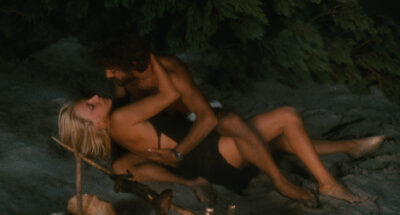For those who don’t like Valentine’s Day, join us for an “anti-romantic” evening with Lina Wertmuller’s Swept Away. Laemmle Theatres and the Anniversary Classics Series present a 50th anniversary screening of the odd-couple arthouse sensation Swept Away. Lina Wertmüller’s provocative, fable-like two-hander brings together Mariangela Melato and Giancarlo Giannini for an oft-ugly battle of the sexes (and classes) cage match with the sparkling Mediterranean for a beautiful backdrop.

Not long after setting off on a yachting expedition, Milanese millionairess Raffaella (Melato) finds herself stranded on an obscure island with the boat’s deckhand (Giannini), a working-class Sicilian communist who promptly establishes dominion over the isle — and his once-prideful ex-employer. A contentious cinematic war of words, which has lost none of its power to inspire heated debate among its viewers.
We will also have a daily regular engagement February 21-27 at the Laemmle Glendale.

“[With Swept Away,] Wertmüller delivered the first girl power picture, and it’s a stunning masterstroke of a movie.” – Bill Gibron, DVD Talk
“As ferocious as it is funny.” – Judith Crist
“A powder keg of class and sexual politics.” – Scott Tobias, AV Club
